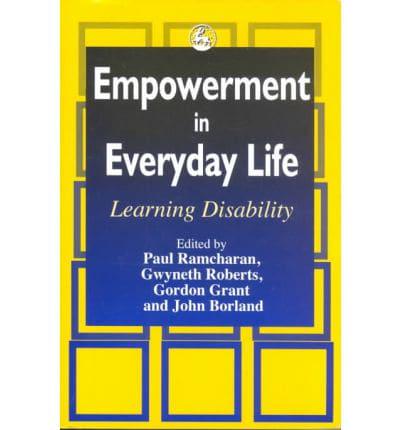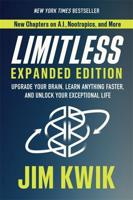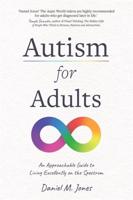Publisher's Synopsis
Empowerment' is a very fashionable word with academics and service providers in the learning disability field, and this collection of views on empowerment will rightly attract readers, who perhaps wish to understand better what precisely it may mean, and how it can be translated into reality. Such readers will not be disappointed with this book, as it is full of many practical examples and a strongly led theoretical research for a useful model for the future. Many chapters serve to remind us of the actual concerns and circumstances of the lives of many people with learning disabilities in the UK today, which can be very far from the idealistic notions that underpin 'empowerment'. However, the book is certainly more than a practical manual, and both the editors and the chapter authors deal critically with the concept of empowerment. This results in a lively and exciting book, raising questions and provoking thought throughout.'
- Journal of Applied Research in Intellectual Disabilities
'This volume includes a number of contrasting chapters from a variety of contributors - researchers, practitioners and policy makers as well as people with learning disabilities themselves. As such it is an interesting mix of academic research, and autobiographical observation which will appeal to a wide readership, especially those concerned with policy making, service provision and state legislation.'
- Aslib Book Guide
'Sensibly, the book deals first with Empowerment in Informal Settings, moves on to Empowerment in Formal Settings and then concludes with an examination of Empowerment in Different Legal and Policy Contexts. The individual chapters were all interesting in their own right… I commend this book to you as a valuable update on views ranging from those of the academic to those with practical experience of the learning difficulty label.'
- Registered Homes
'…an interesting and important addition both to the literature on empowerment in social care and on learning disability developments.'
- British Journal of Social Work
'A valuable resource for the increasing number of professionals and students undergoing professional training… and will be of value to those seeking a greater understanding and knowledge about empowerment, in particular those issues around equality and citizenship for vulnerable people. The book is clearly written and accessible. It provokes thought and challenges ideas in a helpful way, providing a much needed focus on what empowerment for people with learning disabilities might look like and how practice in this area might develop. It should be widely used by educators, researchers and students.'
- Issues in Social Work Education
Individual acts of empowerment practice whether undertaken by service personnel, families or through efforts of people with learning disabilities themselves, are not sufficient to produce an empowered life. Empowerment in Everyday Life takes a unique 'bottom up' approach to empowerment by starting with an examination of the lives and relationships of people with learning disabilities, their families and friends. From these experiences, questions are then asked about how policy making, service provision and state legislation might be implemented in ways which would maximise self-determination, equality and the fight for citizenship by people with learning disabilities and to provide for an empowered life and lifestyle.
The various voices heard in this book provide a spectrum of viewpoints relating to 'empowerment', a concept which has gained much attention, and generated a great deal of debate, in the past decade. The contributors include people with learning disabilities, self advocates, practitioners, academics, and a freelance trainer and consultant on social care.









